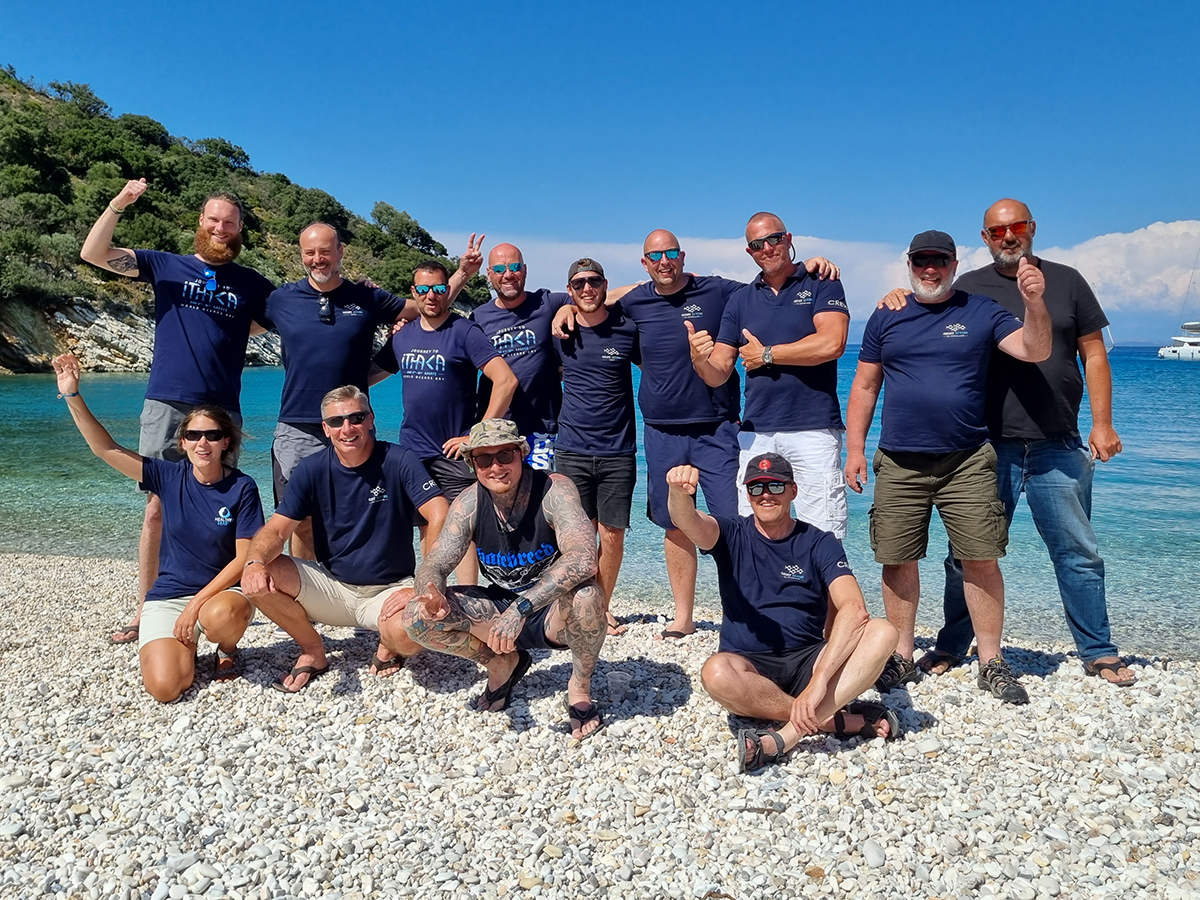Who we are
 Ghost Diving is a registered charity run by technical divers who have specialized in the removal of lost fishing gear and other marine debris since 2009. The organization started in 2012 with the name Ghost Fishing Foundation and our efforts have brought the phenomenon of ‘ghost fishing’ to the attention of the public through key international collaborations, inspiring underwater photography, and unparalleled results.
Ghost Diving is a registered charity run by technical divers who have specialized in the removal of lost fishing gear and other marine debris since 2009. The organization started in 2012 with the name Ghost Fishing Foundation and our efforts have brought the phenomenon of ‘ghost fishing’ to the attention of the public through key international collaborations, inspiring underwater photography, and unparalleled results.
In 2020, the entire global organization was reorganized and renamed into Ghost Diving Foundation, from that moment on, the organization took on a much stronger and more recognizable identity.
Ghost Diving is the largest and most experienced global diving organization focused on the “ghost fishing” phenomenon with a track record in a wide variety of countries and international waters.
Ghost Diving consists of exclusively volunteers carrying out innovative and challenging nature conservation projects independent or with the help of known and unknown fellow environmental organizations.
Ghost Diving relies 100% on donations from the public or companies and will use these funds to pay for their expenses such as boats and diving gases. All time spent by volunteers and the purchase of their personal equipment is entirely at their own time and expense.
To this day, the Ghost Diving team has carried out diving projects independently or in collaboration with several international environmental and/or diving organizations like: Healthy Seas Foundation, Greenpeace, WWF, Global Ghost Gear Initiative and Global Underwater Explorers.
With our headquarters based in the Netherlands, the Ghost Diving concept has inspired many others and spread to 16 countries in the world where local diving teams now also identify as Ghost Diving chapters.
What we do
Ghost Diving Foundation’s Mission to Salvage Marine Life
Diving into the silent world beneath the waves, Ghost Diving embarks on a relentless quest to liberate the ocean floor from the haunting remnants of human activity. Specializing in the removal of lost and abandoned fishing gear, our dedicated organization epitomizes the essence of marine conservation through tangible action.
Beneath the surface lies a hidden menace: ghost nets. These tangled webs of abandoned fishing gear, lost or discarded, continue to ensnare marine life long after their abandonment. Each year, millions of marine animals fall victim to these silent killers, suffering agonizing deaths due to entanglement or ingestion.
With a passionate commitment to marine stewardship, Ghost Diving ventures into the depths, armed with expertise and determination. Our teams of experienced divers navigate the intricate underwater landscape, meticulously disentangling ghost nets from delicate coral reefs and ancient shipwrecks.
Beyond the immediate rescue of trapped marine life, we recognize the broader ecological impact of our work. By removing ghost nets, we prevent further damage to fragile ecosystems, allowing marine habitats to regenerate and thrive once more. Our efforts not only safeguard marine biodiversity but also contribute to the sustainability of global fisheries, mitigating the indiscriminate destruction wrought by abandoned fishing gear.
Yet, the mission of Ghost Diving extends far beyond mere extraction. Through education and advocacy, we strive to raise awareness of the pervasive threat posed by ghost nets and promote responsible fishing practices. By engaging with communities, policymakers, and industry stakeholders, we champion initiatives aimed at preventing the proliferation of abandoned fishing gear, forging a path towards a more sustainable future for our oceans.
As the sun sets on another day of relentless pursuit beneath the waves, Ghost Diving remains undeterred in ourr quest to reclaim the ocean’s depths from the shadows of human negligence. With each net recovered, each life spared, we breathe new life into the silent world below, embodying the profound resilience and boundless beauty of our marine ecosystem
